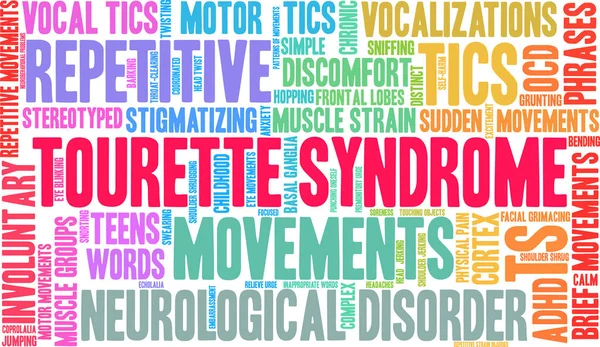According to a study published in the peer-reviewed journal Cannabis and Cannabinoid Research and epublished ahead of print by the National Institute of Health, “medical cannabis may improve their quality of life and comorbidities” in those with Tourette’s syndrome.
 The study, titled Use of Medical Cannabis in Patients with Gilles de la Tourette’s Syndrome in a Real-World Setting, was conducted by researchers at Tel-Aviv University.
The study, titled Use of Medical Cannabis in Patients with Gilles de la Tourette’s Syndrome in a Real-World Setting, was conducted by researchers at Tel-Aviv University.
“Tourette’s syndrome (TS) is a neurodevelopmental disorder characterized by vocal and motor tics and other comorbidities”, states the study. “Clinical recommendations for the use of medical cannabis are established, yet further guidance is needed.” The aim of this study “was to describe the experience of patients with TS with medical cannabis.”
For the study TS patients were recruited from a registry of patients, and questionnaires were answered before and after 6 months of treatment. Patients were divided into two groups: (A) patients who responded and (B) patients who did not respond to the follow-up questionnaire. In group A, an analysis was made to evaluate the presence and frequency of motor and vocal tics. The patients’ general mood, employment status, quality of life, and comorbidities were also included in the analysis.
“The tetrahydrocannabinol and cannabidiol mean daily dose was 123 and 50.5 mg, respectively”, states the study. “In group A, a statistically significant improvement was identified in quality of life, employment status, and in the reduction of the number of medications.”
Sixty-seven percent and 89% of patients with obsessive-compulsive disorder and anxiety comorbidities, respectively, reported an improvement. “No statistically significant improvement was identified in motor tics (p=0.375), vocal tics (p>0.999), tics frequency (p=0.062), or general mood (p=0.129).”
The study concludes by stating that “Subjective reports from TS patients suggest that medical cannabis may improve their quality of life and comorbidities. More studies are needed to evaluate the efficacy and safety of medical cannabis.”
The full abstract of the study can be found below.
Abstract
Objective: Tourette’s syndrome (TS) is a neurodevelopmental disorder characterized by vocal and motor tics and other comorbidities. Clinical recommendations for the use of medical cannabis are established, yet further guidance is needed. The aim of this study was to describe the experience of patients with TS with medical cannabis. Materials and Methods: TS patients were recruited from a registry of patients (“Tikun Olam” company). Questionnaires were answered before and after 6 months of treatment. Patients were divided into two groups: (A) patients who responded and (B) patients who did not respond to the follow-up questionnaire. In group A, an analysis was made to evaluate the presence and frequency of motor and vocal tics. The patients’ general mood, employment status, quality of life, and comorbidities were also included in the analysis. Results: Seventy patients were identified. The tetrahydrocannabinol and cannabidiol mean daily dose was 123 and 50.5 mg, respectively. In group A, a statistically significant improvement was identified in quality of life (p<0.005), employment status (p=0.027), and in the reduction of the number of medications (p<0.005). Sixty-seven percent and 89% of patients with obsessive-compulsive disorder and anxiety comorbidities, respectively, reported an improvement. No statistically significant improvement was identified in motor tics (p=0.375), vocal tics (p>0.999), tics frequency (p=0.062), or general mood (p=0.129). The most frequent adverse effects were dizziness (n=4) and increased appetite (n=3). Conclusion: Subjective reports from TS patients suggest that medical cannabis may improve their quality of life and comorbidities. More studies are needed to evaluate the efficacy and safety of medical cannabis. Registry in the MOH: https://www.moh.gov.sg/ (Trial number: 0185-19-ASF).

